Stacker looked at data on recorded covers from Second Hand Songs and ranked the top 25 songs that fit in the country genre.
– Photo Illustration by Stacker // Getty Images.
Katrina Sirotta
Music historians believe the country music genre originated in the 1910s with Southern Appalachian fiddlers; however, it wasn’t until the following decade that artists started pressing commercial recordings.
Stacker looked at data on all songs with recorded covers from Second Hand Songs and ranked the top 25 songs that we categorized as being in the country genre. The ranking is based on the number of covers as of Nov. 3, 2023.
Fiddle player Eck Robertson is credited as the first person to record country music for commercial release in 1922 when he cut the songs “Sallie Gooden” and “Arkansaw Traveler” to vinyl. But Fiddlin’ John Carson is considered the first person to release a country hit when he put out “Little Log Cabin in the Lane” in 1923. These country songs idealized the so-called good ol’ days at a time when the country was rapidly urbanizing.
But that isn’t the whole story of country’s beginnings. As Ken Burns’ 16-hour documentary series “Country Music” (and many other scholars and artists) have also revealed, country music’s origins owe much to Black artists intermingling with immigrant cultures on American soil.
The influence of African Americans is most evident with the banjo, an integral country music instrument that figured heavily in Southern life and music created by the enslaved. The acts of minstrel and blackface appropriated the banjo, informing the rise of “hillbilly music”—later called “country music.”
Country music’s early days were surprisingly diverse. Despite deep segregation, recording sessions in the 1920s and ’30s often featured collaborations between white and Black musicians, such as Jimmie Rodgers, the “Father of Country Music,” and jazz legend Louis Armstrong performing “Blue Yodel Number 9.” Then, there was DeFord Bailey, a harmonica player who performed at Grand Ole Opry. He would become the genre’s first Black country star.
In the century since Carson made those first recordings, country music has evolved from fiddlers and bluegrass bands to cowboys (i.e., Hank Williams), crossover icons (i.e., Dolly Parton), and even outlaws (i.e., Johnny Cash). Country has also become a Top 40 genre, with 1990s stars like Shania Twain and Garth Brooks ruling the radio. Crossover sensations like Taylor Swift, Carrie Underwood, and Lil Nas X have blurred the lines between country and other genres even more.
Many of the songs on this list were originally written or recorded by classic artists like Williams, Parton, Cash, Patsy Cline, and even Fiddlin’ John Carson, and they prove just how timeless—and versatile—the genre can be.
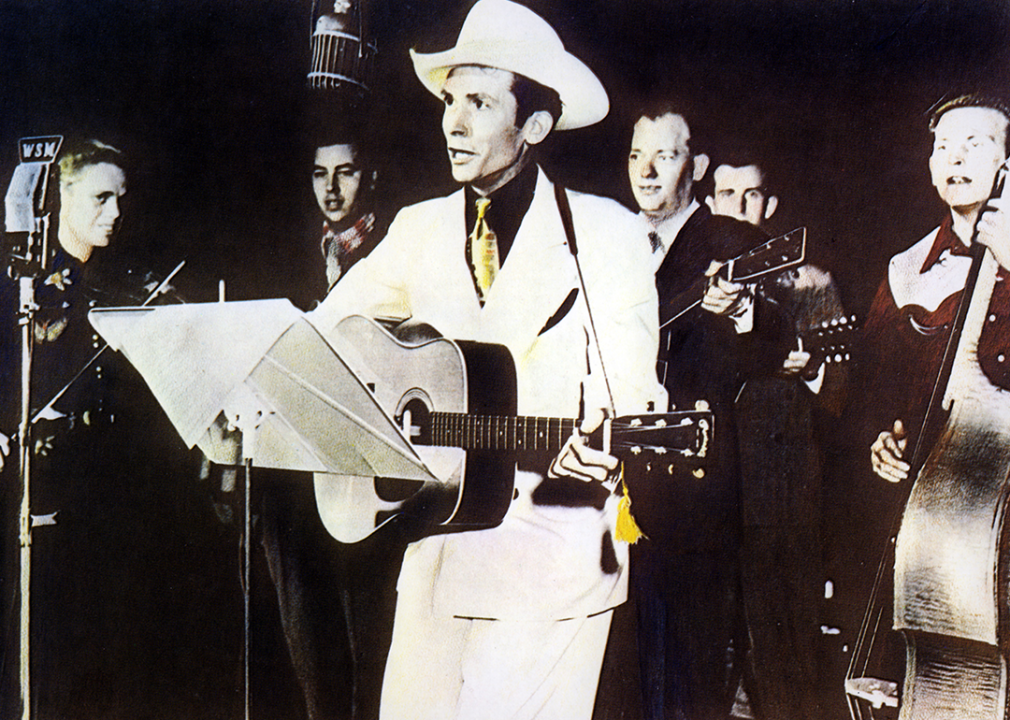
GAB Archive/Redferns // Getty Images
#25. I Saw the Light
– Originally recorded by: Hank Williams with His Drifting Cowboys, Clyde Grubb and His Tennessee Valley Boys
– Written by: Hank Williams
– Covers: 162
– Adaptations: 5
“I Saw The Light,” released in September 1948, was one of the first songs Hank Williams recorded after being signed by MGM Records. Clyde Grubbs recorded his version for RCA, which came out in August 1947.
The country hymn wasn’t a commercial success when it debuted; however, it became one of Williams’ most well-known songs and has been covered more than 150 times by artists, including Willie Nelson and Hank Williams’ son, Hank Williams, Jr.
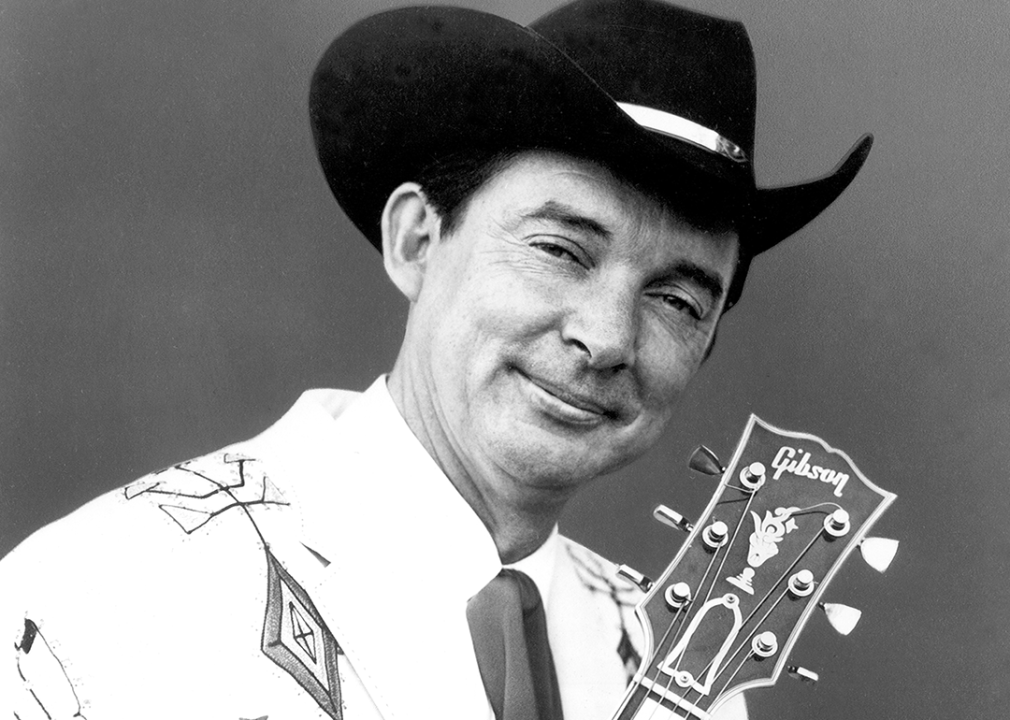
Michael Ochs Archives // Getty Images
#24. Crazy Arms
– Originally recorded by: Kenny Brown and Marilyn Kaye and The Arkansas Ramblers
– Written by: Ralph Mooney, Chuck Seals
– Covers: 170
– Adaptations: 3
Kenny Brown and Marilyn Kaye and The Arkansas Ramblers may be the first group to record and release “Crazy Arms” in 1956, but it was Ray Price’s version, which came out the same year, that garnered commercial success. The song was Price’s first #1 single and spawned numerous covers from artists like Chuck Berry, Waylon Jennings, and Patsy Cline.
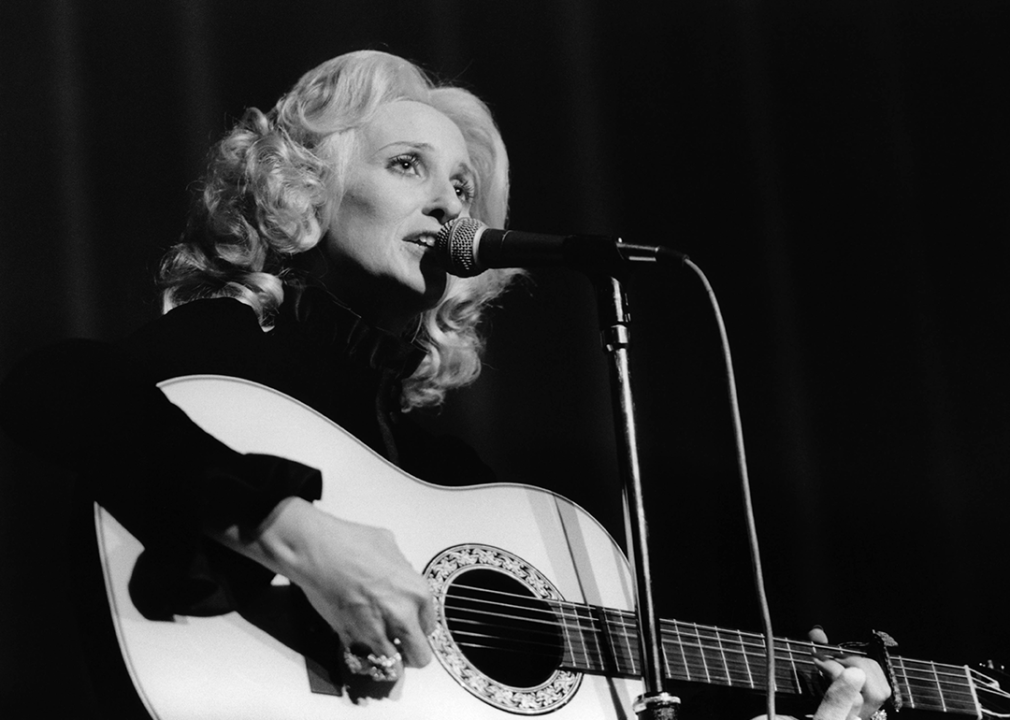
David Redfern/Redferns // Getty Images
#23. Stand by Your Man
– Originally recorded by: Tammy Wynette
– Written by: Tammy Wynette, Billy Sherrill
– Covers: 188
– Adaptations: 25
Tammy Wynette released hundreds of songs during her decades-long career, but 1968’s chart-topping “Stand by Your Man” was the most popular single in her catalog. Though a hit, “Stand by Your Man” was deemed controversial upon its release for being “anti-women’s liberation.” Its reputation didn’t stop stars like Tina Turner, Dixie Chicks (now known as The Chicks), and Elton John from covering it.
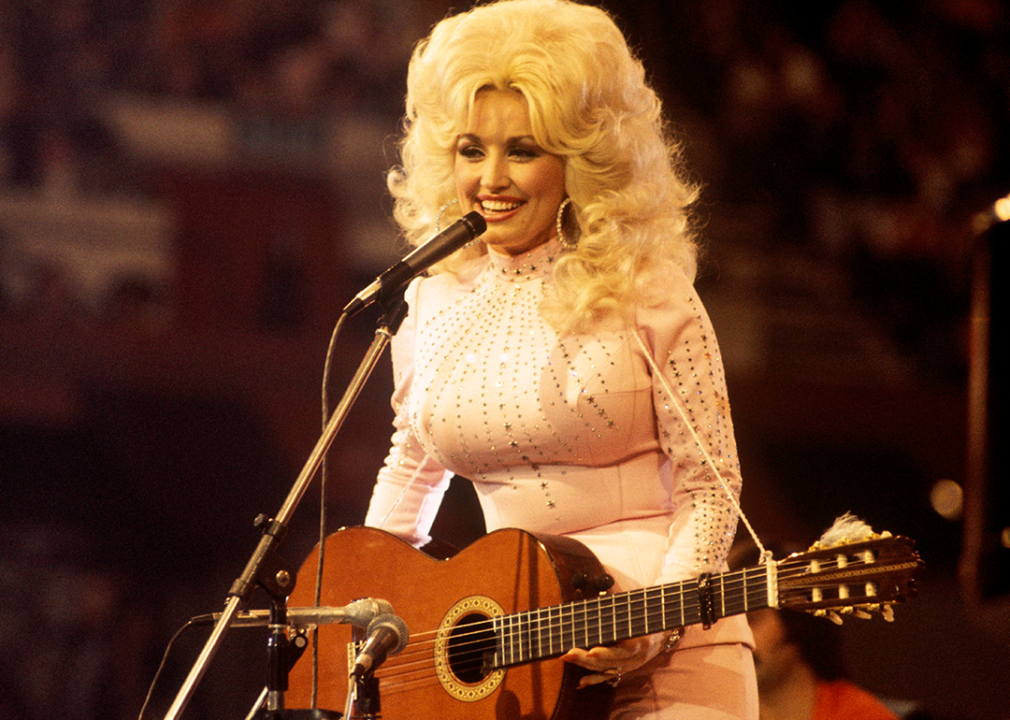
David Redfern/Redferns // Getty Images
#22. Jolene
– Originally recorded by: Dolly Parton
– Written by: Dolly Parton
– Covers: 189
– Adaptations: 13
Dolly Parton has written many hits, but few are as iconic as “Jolene.” The 1974 single was her second to top the charts and has been covered by artists such as Olivia Newton-John and Ellie Goulding. At just 200 words, the song resonates with anyone who has ever felt inadequate, which Parton says is part of its universal appeal.
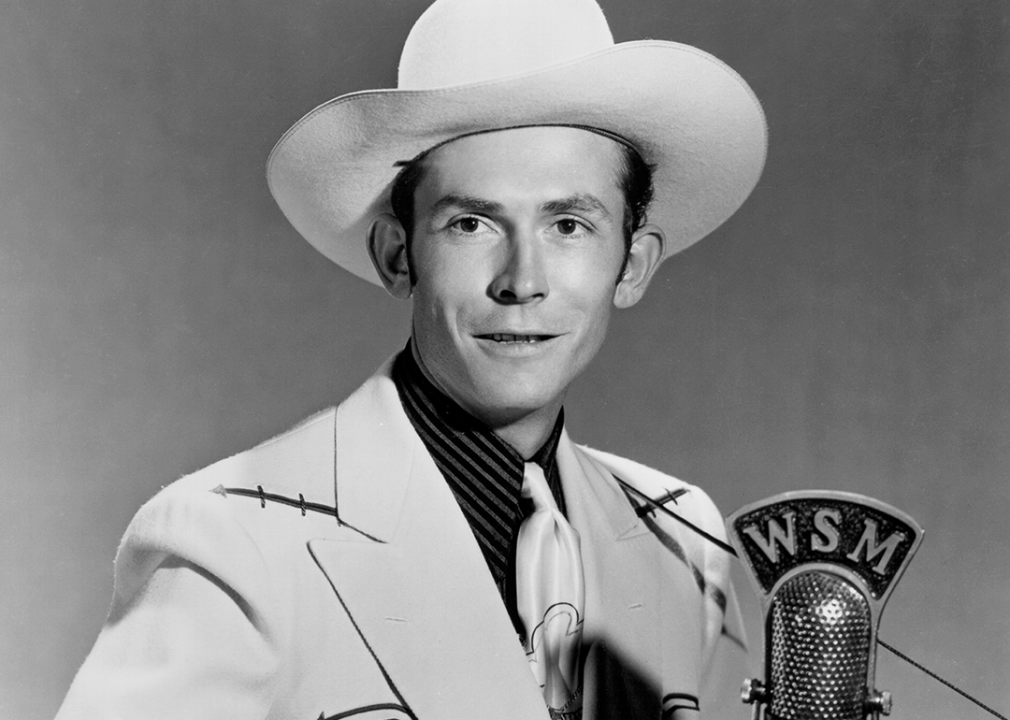
Michael Ochs Archives // Getty Images
#21. I Can’t Help It (If I’m Still in Love with You)
– Originally recorded by: Hank Williams with His Drifting Cowboys
– Written by: Hank Williams
– Covers: 191
– Adaptations: 5
You’ll notice a theme as you continue reading this list, and that theme is Hank Williams. The country legend wrote so many songs that other artists have made their own. His 1951 classic ‘I Can’t Help It (If I’m Still in Love with You)’ was covered by Ray Price, Johnny Cash, and Roy Orbison—and that’s just who covered the song in the first two decades since its release.
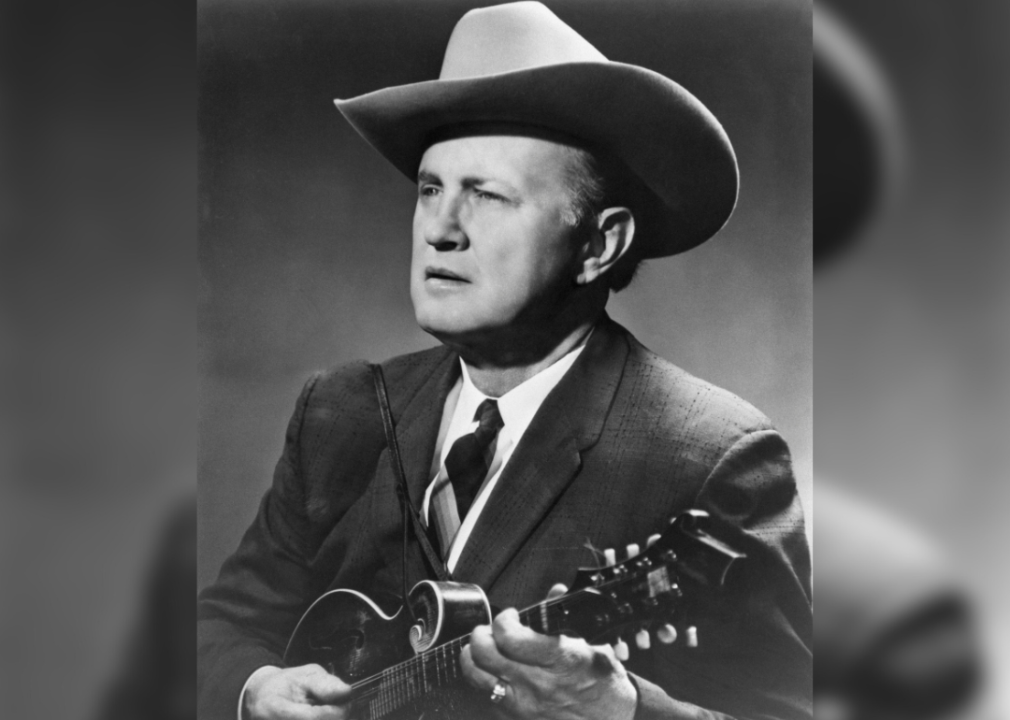
Bettmann // Getty Images
#20. Blue Moon of Kentucky
– Originally recorded by: Bill Monroe and His Bluegrass Boys
– Written by: Bill Monroe
– Covers: 193
– Adaptations: 2
Many people think of Elvis Presley when they think of “Blue Moon of Kentucky,” but his 1954 pop rendition isn’t the original. Bill Monroe and His Bluegrass Boys initially recorded the bluegrass track seven years earlier, in 1947. Presley isn’t the only famous name to cover the song; Paul McCartney and Ray Charles also have versions.
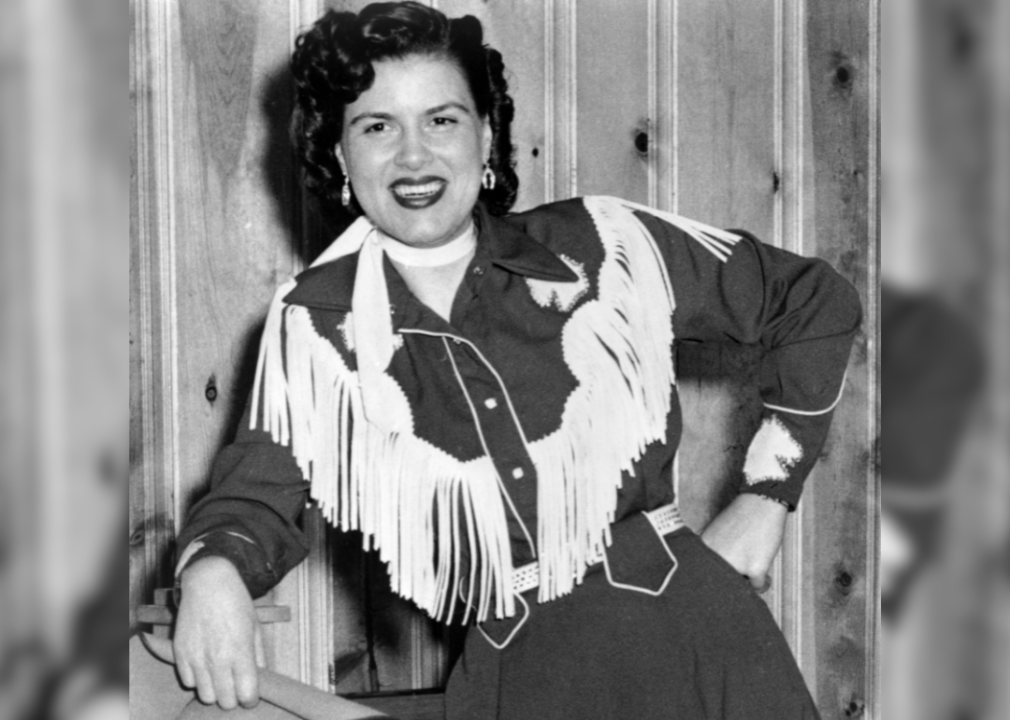
Michael Ochs Archives // Getty Images
#19. I Fall to Pieces
– Originally recorded by: Patsy Cline with The Jordanaires
– Written by: Hank Cochran, Harlan Howard
– Covers: 202
– Adaptations: 4
“I Fall to Pieces” is considered a country classic, but it took six months for Patsy Cline’s 1961 single to hit #1 on the charts. Since its release, the ballad has garnered hundreds of covers, including a 1980 duet by Willie Nelson and Ray Price.
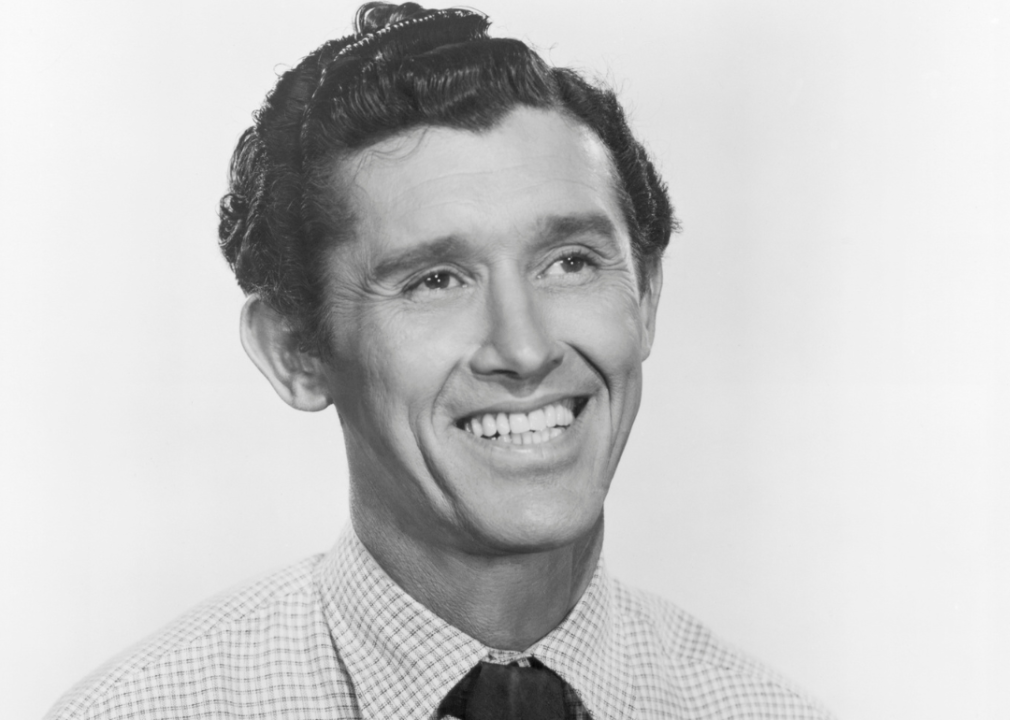
George Rinhart/Corbis via Getty Images
#18. Blue Eyes Crying in the Rain
– Originally recorded by: Roy Acuff and His Smoky Mountain Boys, Elton Britt and The Skytoppers
– Written by: Fred Rose
– Covers: 210
– Adaptations: 11
Willie Nelson was the one to make “Blue Eyes Crying in the Rain” a hit in 1975, but the song was initially performed live by Roy Acuff and His Smoky Mountain Boys in 1945 and recorded by Elton Britt and The Skytoppers in 1947. Nelson’s version made it to #1 on the Billboard charts and was also the third most popular country song of 1975.
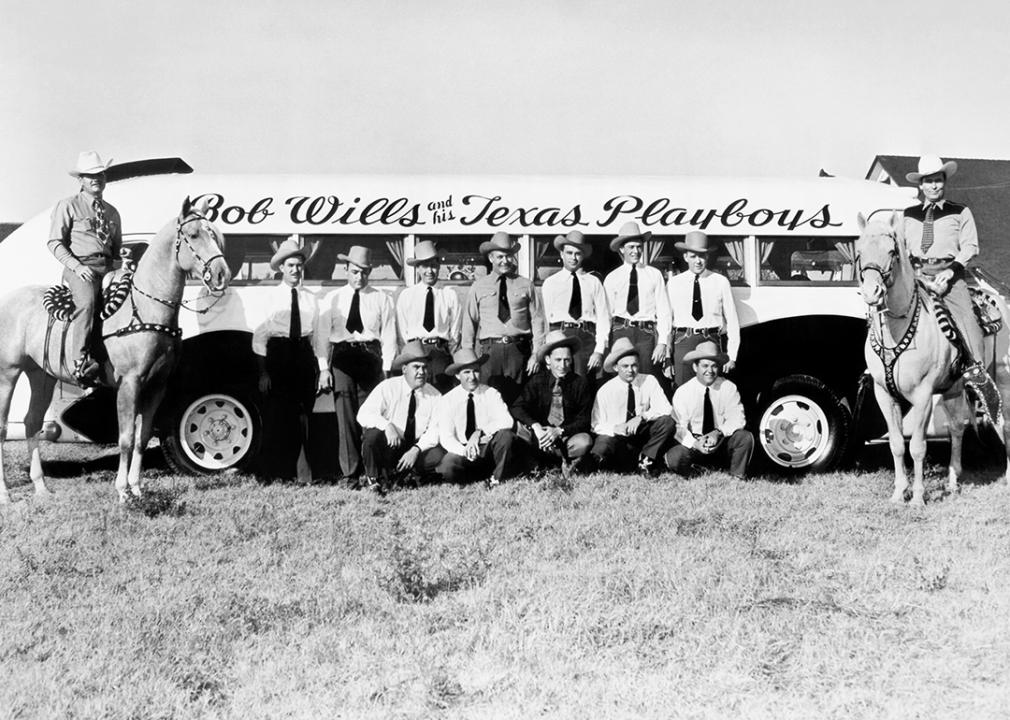
Donaldson Collection // Getty Images
#17. Corrine Corrina
– Originally recorded by: Charlie McCoy and Bo Chatman
– Written by: Mitchell Parish, J. Mayo Williams, Bo Carter
– Covers: 213
– Adaptations: 10
“Corrine Corrina” was initially released in 1928 by blues artists Charlie McCoy and Bo Chatman, but Bob Wills and the Texas Playboys’ 1941 version transformed the song into a country western classic. The song has inspired many covers since then, from the likes of Jerry Lee Lewis, Eric Clapton, and Beck.
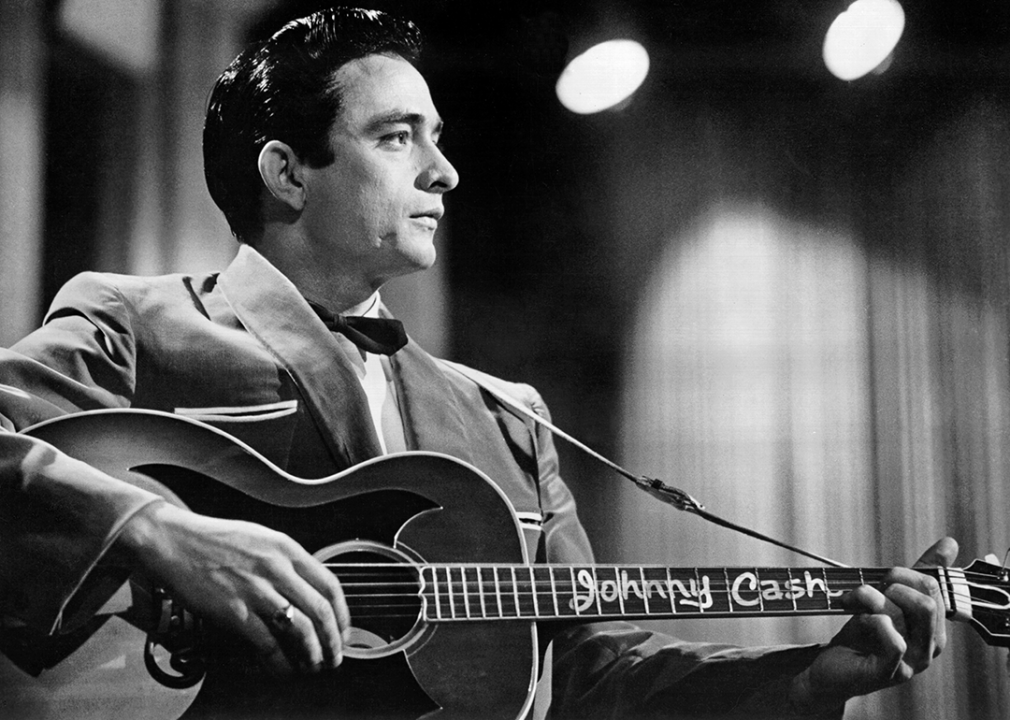
Michael Ochs Archives // Getty Images
#16. I Walk the Line
– Originally recorded by: Johnny Cash and Tennessee Two
– Written by: Johnny Cash
– Covers: 216
– Adaptations: 11
Johnny Cash wrote a lot of hits in his lifetime, but his first #1 single was “I Walk the Line.” The 1956 song is arguably his most iconic, spawning a cover from an equally iconic country artist, Dolly Parton.
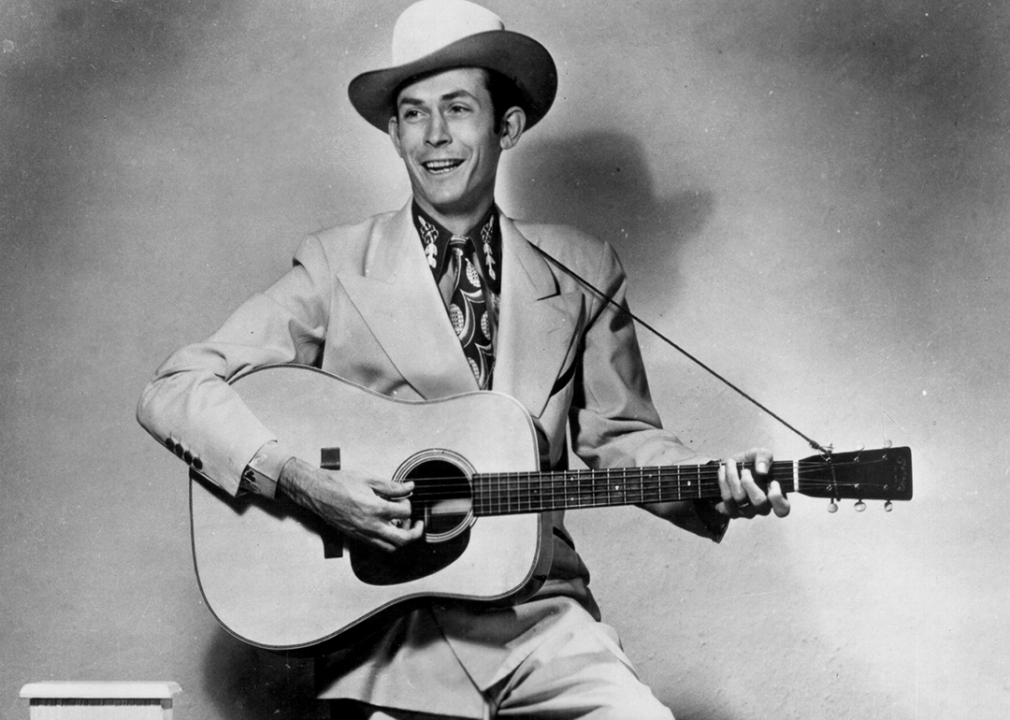
Michael Ochs Archives // Getty Images
#15. Hey, Good Lookin’
– Originally recorded by: Hank Williams with His Drifting Cowboys
– Written by: Hank Williams
– Covers: 224
– Adaptations: 9
Hank Williams’ life was tragically cut short at the age of 29, but in the short time he was on this earth, he made quite an impact. One of his many country chart toppers was 1951’s “Hey, Good Lookin’.” Like many of his other songs, A-list artists like Johnny Cash, Ray Charles, and Roy Orbison covered the tune.
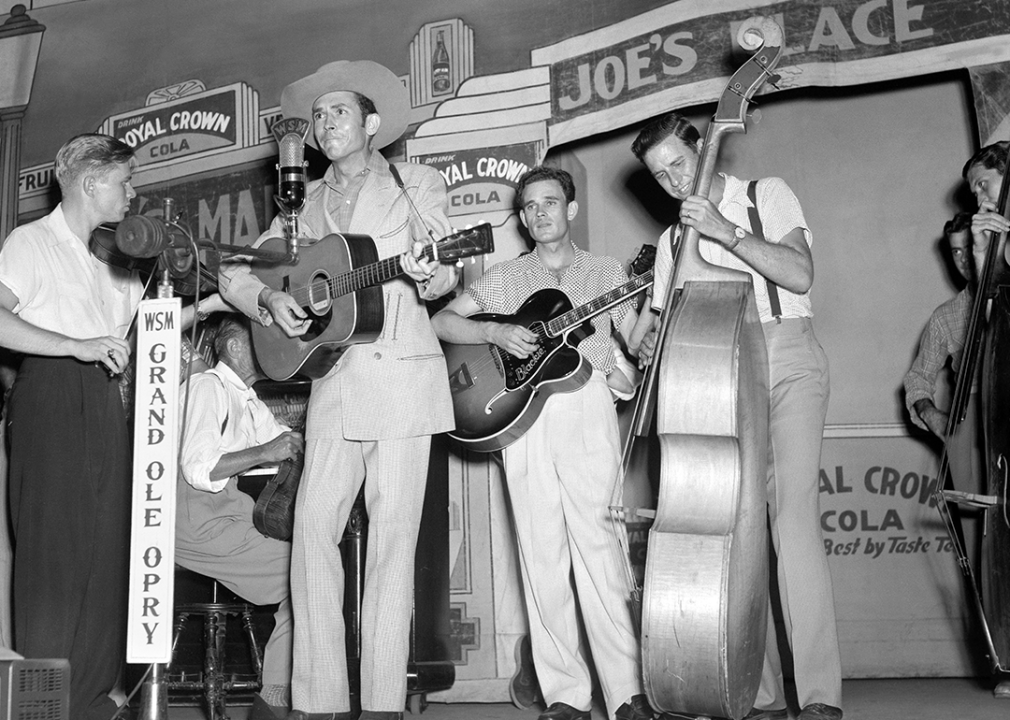
Bob Grannis // Getty Images
#14. Cold, Cold Heart
– Originally recorded by: Hank Williams with His Drifting Cowboys
– Written by: Hank Williams
– Covers: 238
– Adaptations: 5
Hank Williams had a successful year in 1951, which began with the release of “Cold, Cold Heart.” Tony Bennett put a pop spin on the ballad the same year, and both versions ended up topping the charts.
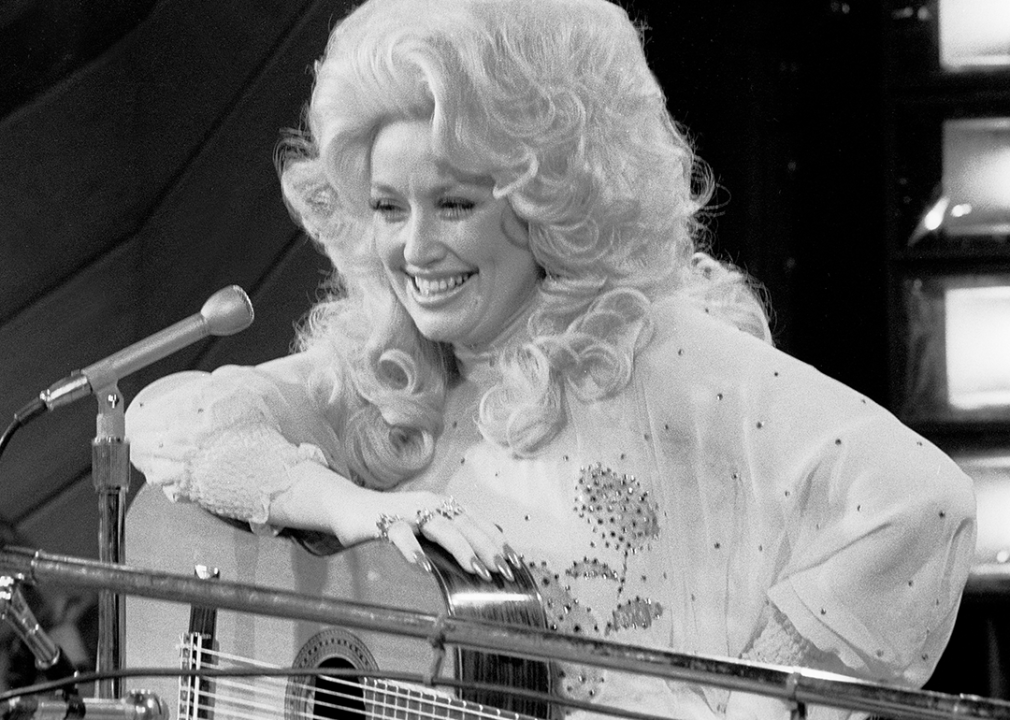
Paul Natkin // Getty Images
#13. I Will Always Love You
– Originally recorded by: Dolly Parton
– Written by: Dolly Parton
– Covers: 255
– Adaptations: 10
Hundreds of artists have covered Dolly Parton’s “I Will Always Love You,” including Whitney Houston in 1992 for “The Bodyguard,” but one star who loved the song and never had the opportunity to make it his own: Elvis Presley. Parton made the difficult decision not to push through with the deal because it would have meant giving up half the publishing rights.
“I always wondered what it would sound like. I know he’d kill it. Don’t you? He would have killed it,” Parton said of Presley in a 2006 interview with CMT.
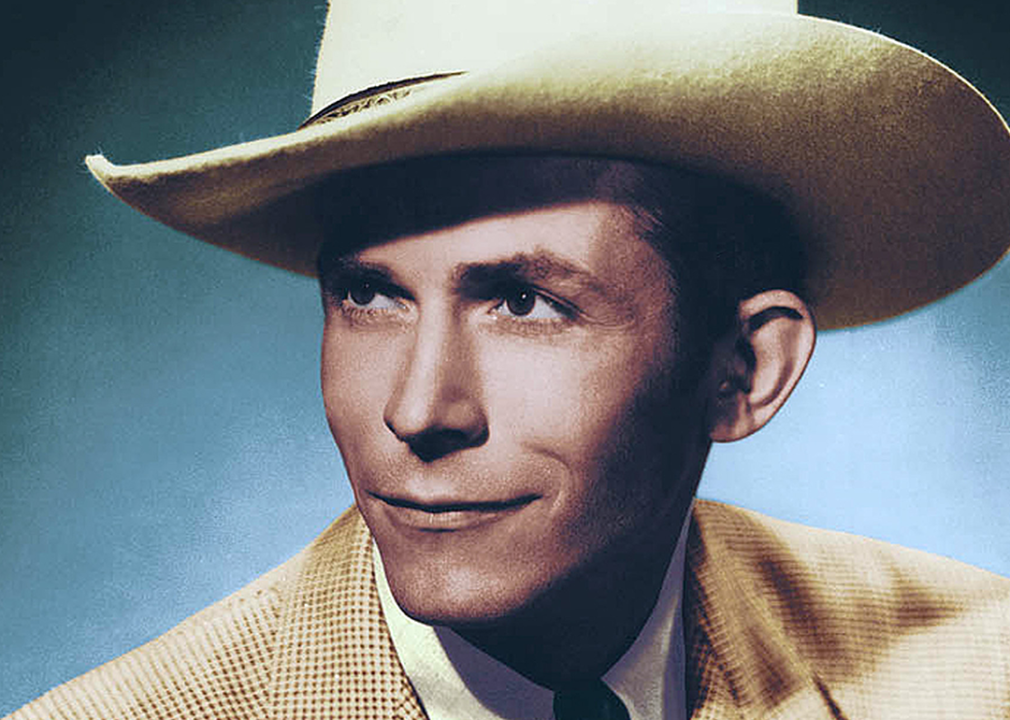
GAB Archive/Redferns // Getty Images
#12. Your Cheatin’ Heart
– Originally recorded by: Hank Williams with His Drifting Cowboys
– Written by: Hank Williams
– Covers: 306
– Adaptations: 9
“Your Cheatin’ Heart” was another #1 single for Hank Williams, but sadly it was posthumous. The song came out in February 1953, and the country star tragically died on Jan. 1 of that year. Hundreds of artists have since covered the song, but none are as memorable as Ray Charles’ 1962 soul rendition.
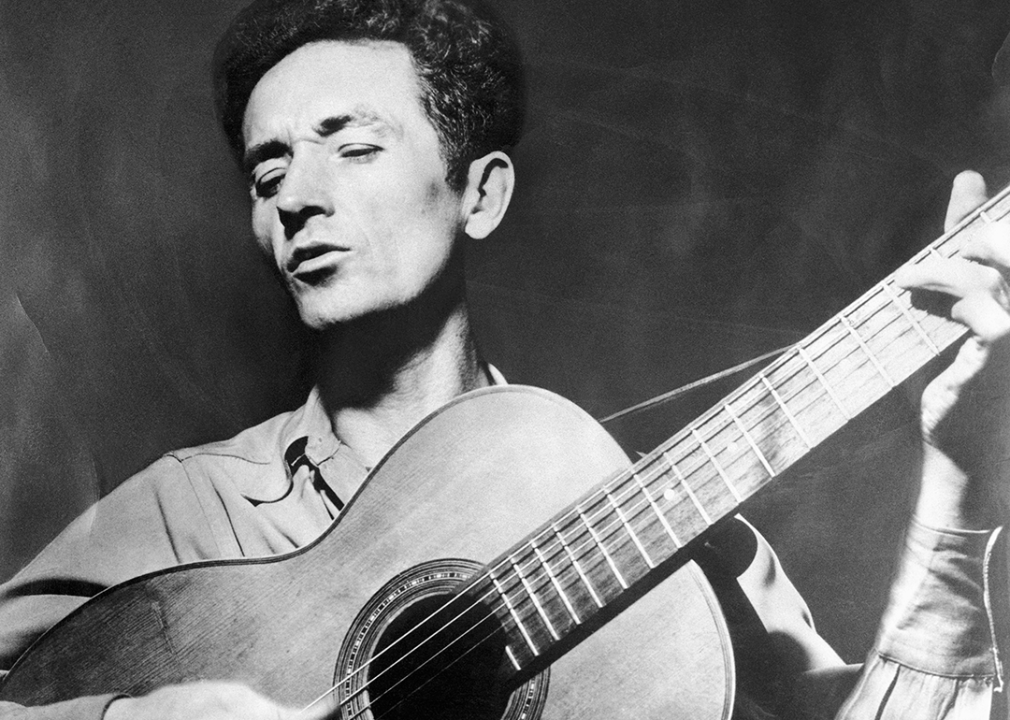
Bettmann // Getty Images
#11. John Henry
– Originally recorded by: Fiddlin’ John Carson
– Written by: Traditional
– Covers: 310
– Adaptations: 3
“John Henry” is considered one of the most popular folk songs in American history. Fiddlin’ John Carson first recorded it in 1924, but several versions abound. The Library of Congress theorizes the song probably started as a work song and usually features a worker in competition with a steam-powered drilling machine. The hero wins the contest but dies in the process.
The song has been covered over 300 times in the past century, including by Woody Guthrie and Johnny Cash.
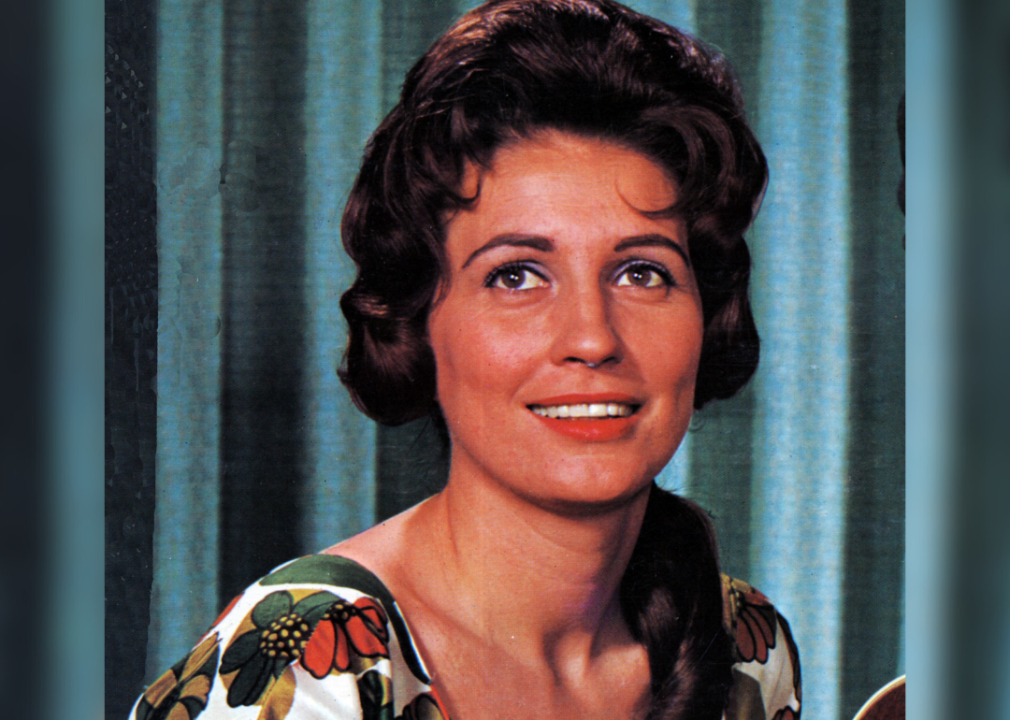
GAB Archive/Redferns // Getty Images
#10. Love’s Ring of Fire
– Originally recorded by: Anita Carter
– Written by: June Carter, Merle Kilgore
– Covers: 312
– Adaptations: 18
If “Love’s Ring of Fire” sounds familiar, you probably recall Johnny Cash’s hit “Ring of Fire.” The song was co-written by Cash’s second wife, June Carter; however, her sister Anita Carter first recorded the song in October 1962. Cash recorded his iconic version of the track a few months later, in March 1963.
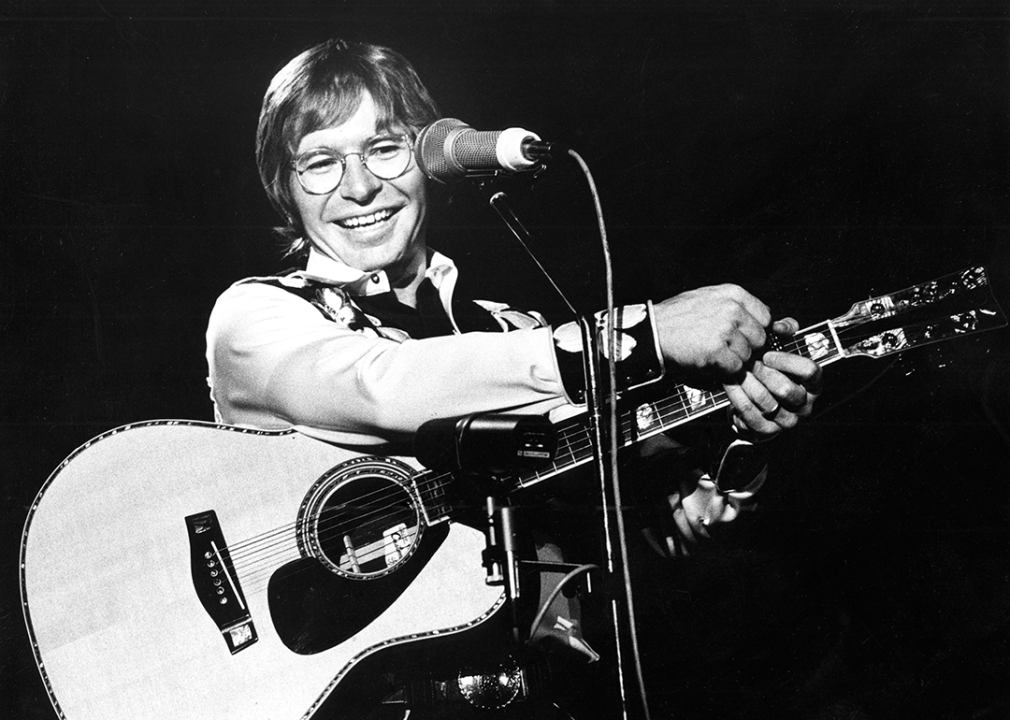
Gijsbert Hanekroot/Redferns // Getty Images
#9. Take Me Home, Country Roads
– Originally recorded by: John Denver
– Written by: John Denver, Bill Danoff, Taffy Nivert
– Covers: 325
– Adaptations: 34
“Poems, Prayers, and Promises” was John Denver’s fifth album, and its single “Take Me Home, Country Roads” is what launched him into superstardom. Olivia Newton-John released her version of the song in 1973, which became a hit—so much so that Newton-John’s vocals appear in the opening scene of the animated “Whisper of the Heart” from Hayao Miyazaki’s Studio Ghibli. Other versions of Denver’s hit have similarly crossed cultural boundaries, such as Hawaiian singer Israel Kamakawiwo’ole version about West Mākaha.
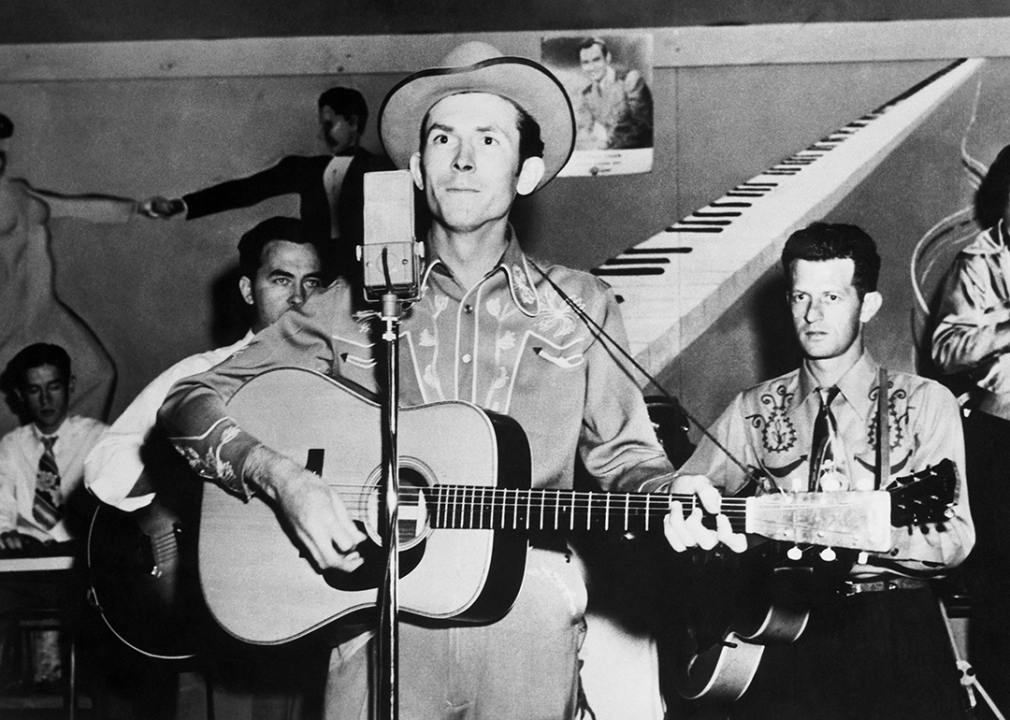
George Rinhart/Corbis via Getty Images
#8. I’m So Lonesome I Could Cry
– Originally recorded by: Hank Williams with His Drifting Cowboys
– Written by: Hank Williams
– Covers: 330
– Adaptations: 8
“I’m So Lonesome I Could Cry” was a B-Side to Hank Williams’ 1949 single “My Bucket’s Got a Hole in It,” but it still soared to #4 on the country charts. Elvis Presley, who covered the melancholy tune on his 1973 live album “Aloha From Hawaii,” prefaced the performance by saying, “I’d like to sing a song that’s probably the saddest song I ever heard.” That sentiment is one many artists and fans can relate to and is what makes the country classic so relatable.
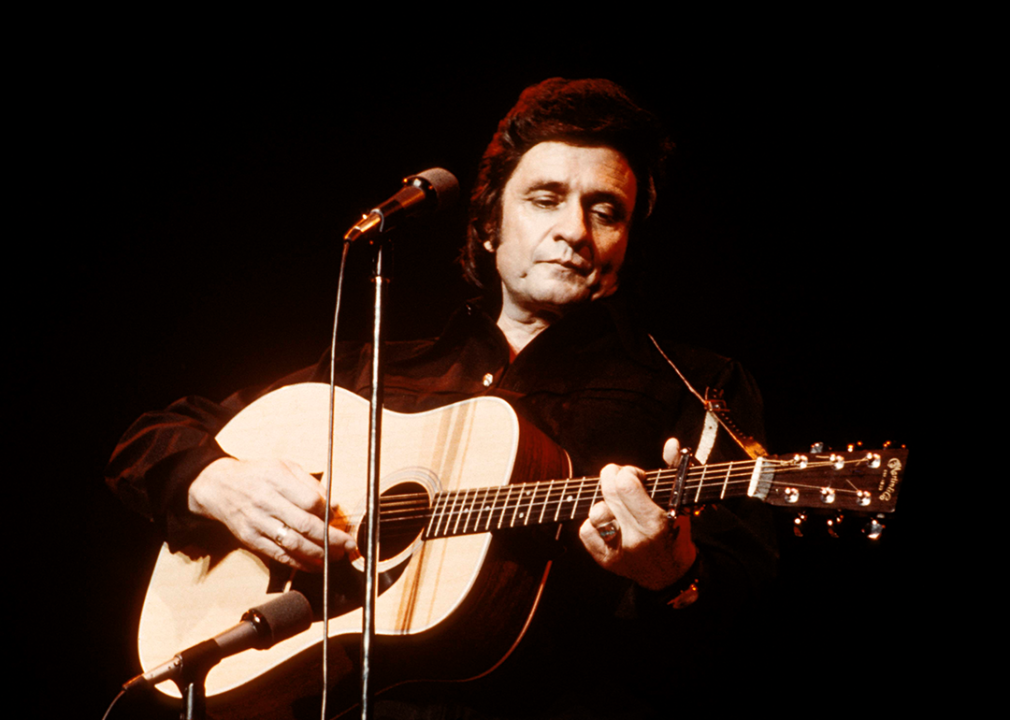
RB/Redferns // Getty Images
#7. Riders in the Sky
– Originally recorded by: Bob Geddins Cavaliers
– Written by: Stan Jones
– Covers: 348
– Adaptations: 19
“(Ghost) Riders in the Sky” was first recorded by Bob Geddins Cavaliers in 1948; however, its cover versions may be more popular than the original. Johnny Cash put his twist on the song in 1979, which appeared on the “Blue Brothers 2000” movie soundtrack in 1997.
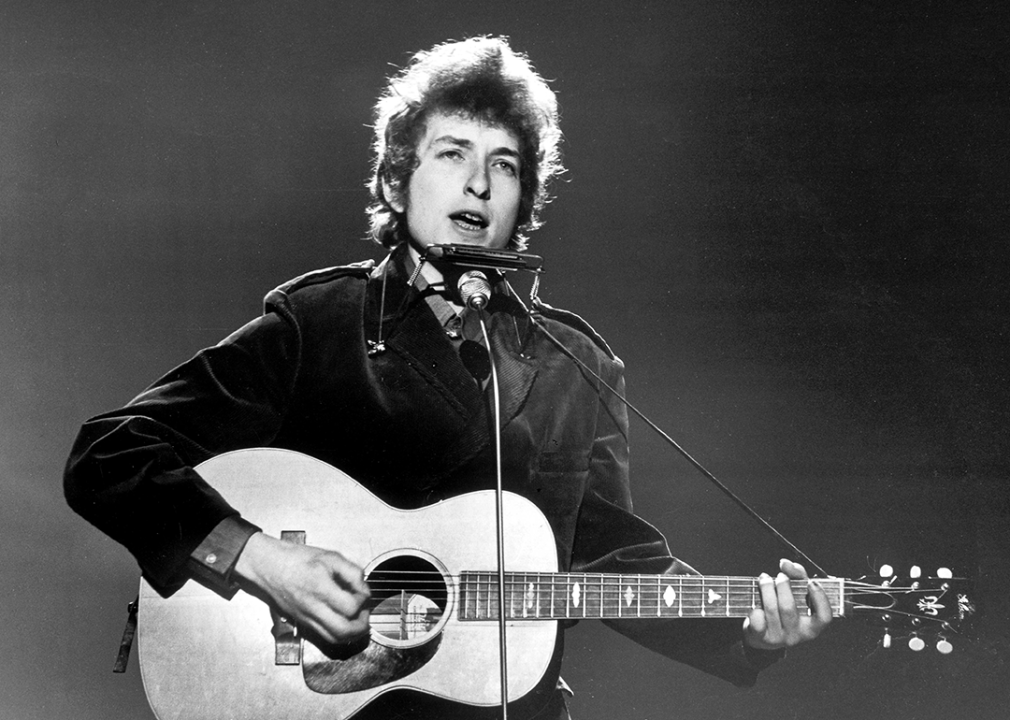
Val Wilmer/Redferns // Getty Images
#6. I’m Nine Hundred Miles Away from Home
– Originally recorded by: Fiddlin’ John Carson
– Written by: Traditional
– Covers: 351
– Adaptations: 29
It’s thought Fiddlin’ John Carson is the first musician ever to record a country hit. His 1924 track “I’m Nine Hundred Miles Away from Home” became one of the most-covered country songs of all time. Bing Crosby and Bob Dylan are just two of the 351 acts who’ve put their spin on the traditional tune.
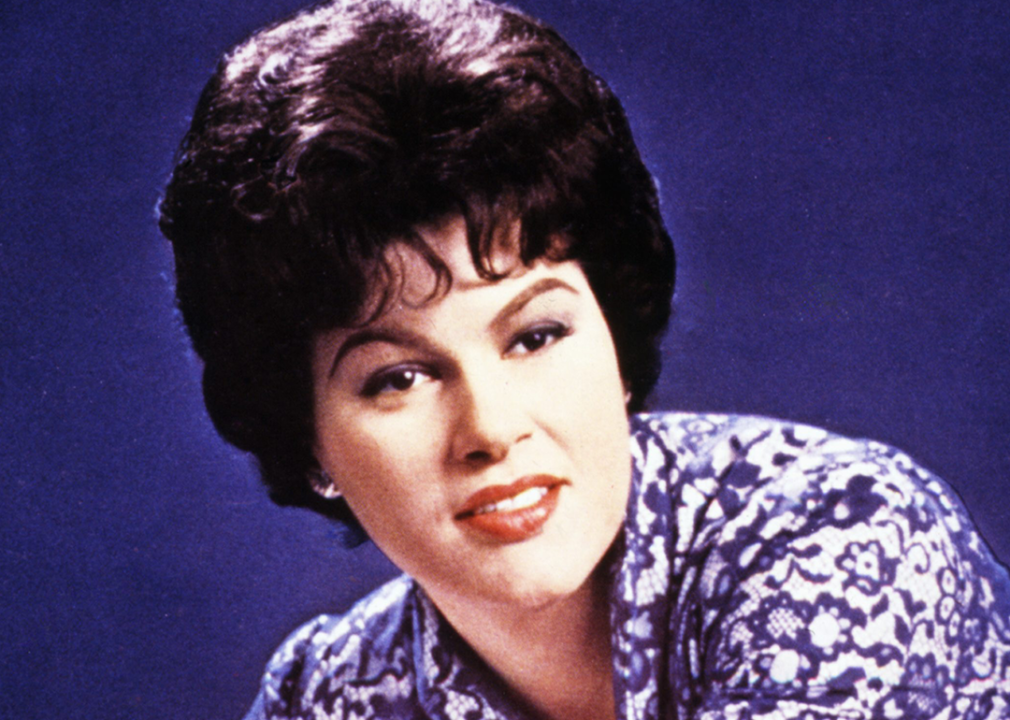
GAB Archive/Redferns // Getty Images
#5. Crazy
– Originally recorded by: Patsy Cline with The Jordanaires
– Written by: Willie Nelson
– Covers: 372
– Adaptations: 11
“Crazy” was the follow-up single to Patsy Cline’s chart-topper “I Fall to Pieces,” but what’s even crazier is that Willie Nelson was an unknown songwriter when the track came out in 1961. Cline’s recording helped establish Nelson’s name in the country game, and he recorded his version of the song the following year for his album “…And Then I Wrote.”
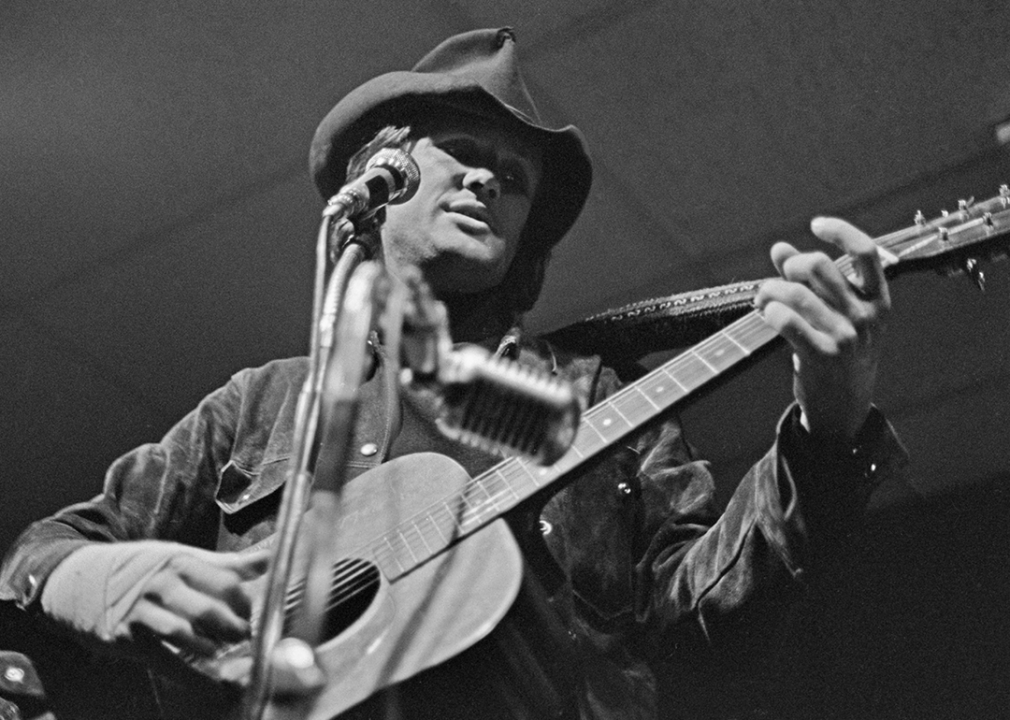
Don Paulsen/Michael Ochs Archives // Getty Images
#4. Help Me Make It Through the Night
– Originally recorded by: Kris Kristofferson, Percy Sledge
– Written by: Kris Kristofferson
– Covers: 403
– Adaptations: 35
Kris Kristofferson’s “Help Me Make It Through the Night” was deemed controversial due to its racy lyrics when it came out in 1970, but that didn’t stop it from not only becoming a hit for him but for other artists, too.
When women sang the song, especially, scandal seemed close at hand. Sammi Smith, the first woman to record the song, appreciated its frankness as it details an intimate night. Elvis Presley, Willie Nelson, and Johnny Cash are a few of the names who also recorded popular versions of the song.
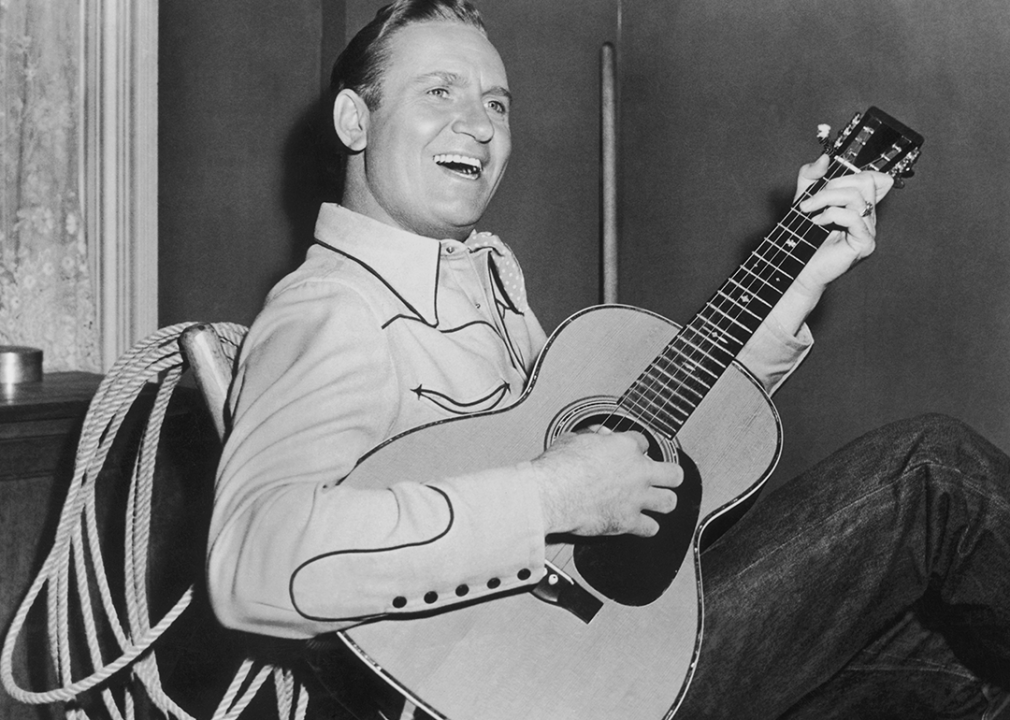
Columbia Pictures/Archive Photos // Getty Images
#3. Frosty the Snow Man
– Originally recorded by: Gene Autry and The Cass County Boys
– Written by: Jack Rollins, Steve Nelson
– Covers: 436
– Adaptations: 14
“Frosty the Snow Man” is an iconic holiday tune first introduced in 1950. Gene Autry and The Cass County Boys recorded the original version, which came out on Sept. 11, while Nat King Cole’s famous rendition dropped just two weeks later.
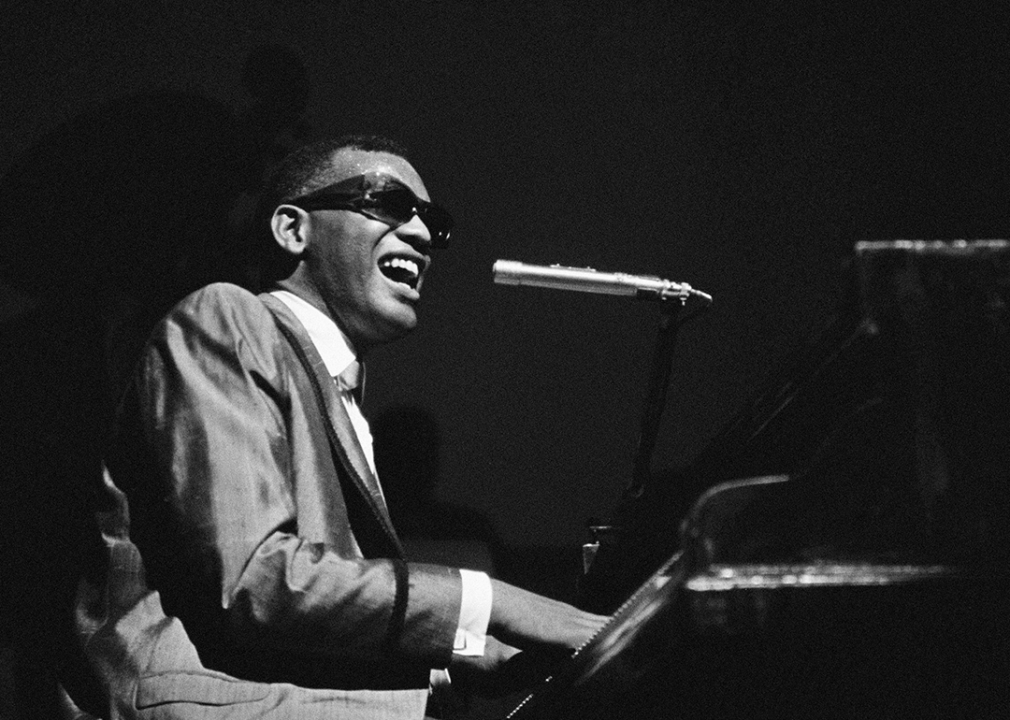
REPORTERS ASSOCIES/Gamma-Rapho via Getty Images
#2. You Are My Sunshine
– Originally recorded by: The Pine Ridge Boys
– Written by: Jimmie Davis
– Covers: 439
– Adaptations: 13
“You Are My Sunshine” is a well-loved children’s lullaby, but the original version is a 1939 country standard by The Pine Ridge Boys. The versatile track has also been given a soul spin by Ray Charles and a rock rendition by Van Morrison, to name a few of its hundreds of iterations.
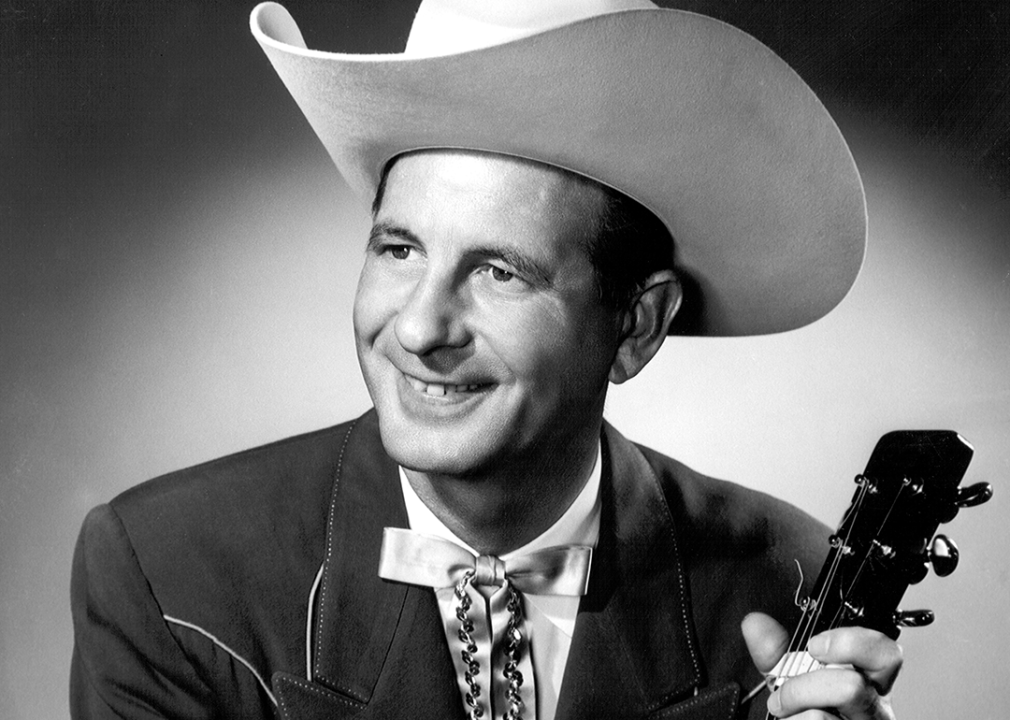
Michael Ochs Archives // Getty Images
#1. Tennessee Waltz
– Originally recorded by: Cowboy Copas, Pee Wee King and His Golden West Cowboys
– Written by: Pee Wee King, Redd Stewart
– Covers: 458
– Adaptations: 16
When the Cowboy Copas first recorded the “Tennessee Waltz” in 1947, and Pee Wee King and His Golden West Cowboys first released it in 1948, there’s no way they’d be able to fathom just how popular the song would become. Artists like Otis Redding, Ella Fitzgerald, Patsy Cline, and Elvis Presley all put their spin on the country standard.
First written on an unfolded matchbook, the song has become one of Tennesse’s official state songs. The original sheet music now sits at the Natalie L. Haslam Music Center at the University of Tennessee Knoxville.
Story editing by Carren Jao. Copy editing by Kristen Wegrzyn.
